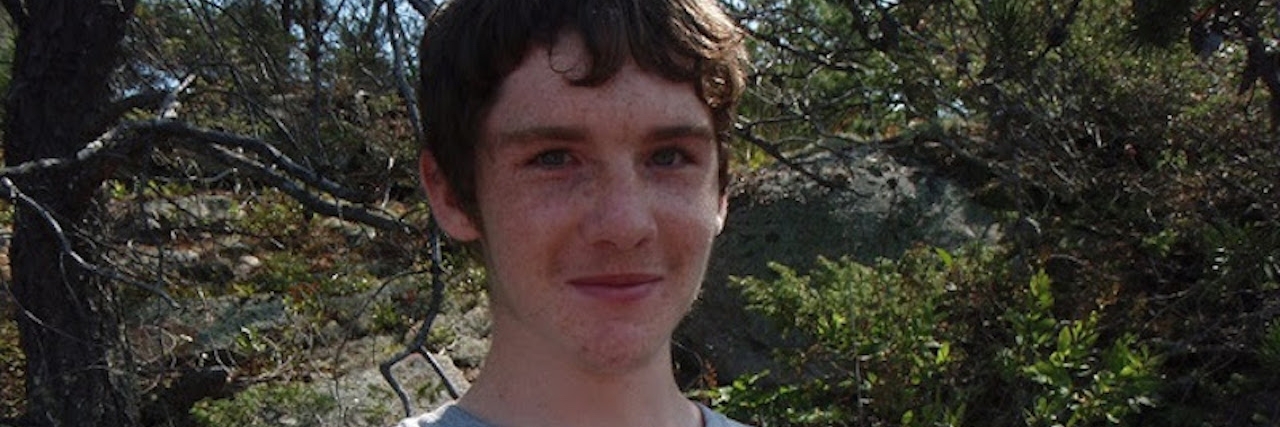Our 17-year-old son Shayne lost all hope. He believed things were never going to get any better, and as a result took matters into his own hands. On March 3, 2014, he took his own life. We have now entered into a realm no parent or person should have to enter.
Suicide devastates those left behind and its wake is widespread, affecting all those who knew the person. It’s a permanent solution to an often temporary problem, either real or perceived, that once completed cannot be reversed. The impact of the death is felt by many, yet understood by few, if any.
For every person who dies by suicide, there are several lives that are deeply impacted, whose lives are forever changed. Mothers, fathers, sisters, brothers, aunts, cousins, wives, husbands, children, friends, colleagues — the list is endless and the impact massive, if not catastrophic.

Depression weighs down those who experience it. Our son often said he thought we would all be better off if he were dead. He seemed to feel he was causing us too much grief, sadness, heartache and trouble and that our lives would be better without him — all of which were not true. However, even after hearing him express his feelings and thoughts, we didn’t think he would take his own life. We thought we were still on the road to recovery.
Often people say that those who die by suicide or “committed suicide” are selfish. Those of us involved in the day to day struggles of living with this are concerned about the two words “committed” and “selfish.” The terms suggest that the person had a choice and I feel perpetuates the stigma of both suicide and mental health.
All too often, they are suffering in silence. Those individuals who die by suicide are doing so out of desperation to end an unbearable pain. It’s up to us and society to recognize those actions, warning signs, needs and assumptions and to dispel those negative beliefs.
As a society, we need to practice patience, understanding and compassion for those who live with mental illness.

Our son cared for and loved both his family and his friends deeply. He was kind, caring, sensitive, shy, generous, compassionate and fun-loving. But it was like he didn’t know we loved him unconditionally. It seemed like it didn’t matter what we said.
So how is suicide different from all other losses or deaths? – guilt. Plain and simple, it is the barrage of “What if’s,” “If I had only done x,” “If I had not done y” or “Why didn’t I do x or say x?” These relentless questions overtake your whole thought process as you try to analyze the reasons why.
There is emptiness — a void we will never fill or ever get over. My husband has sat on the couch for 14 months in a catatonic depressed state, while my two daughters are extremely angry and bewildered. All three of them were extremely close. There is much torture, anguish and blame for our failure to not only protect, but to prevent the suicide.

People often don’t know what to say or what to do, so they either avoid you or the topic altogether.
But something unique or beautiful occurs when you are not silent. When we’ve opened up about our son’s major depression and anxiety, others have opened up to us. When you share, it’s like you’re giving others permission to reveal a deep dark secret or break down a silent barrier. There is no shame in speaking about suicide, and the only way to stamp out stigma and perhaps prevent more suicides is to be more open, and more honest.
As we share our experience, our hope is that the stigma associated with suicide and mental health may one day be eradicated. All too often we suffer in silence — we try to cover up the act, don’t speak of the “unspeakable tragedy.” But it’s time to break that code of silence. It’s time to speak up!
What has our son Shayne taught us? His life was too short and his death too sudden, but he will not be forgotten. My mission now is for others to know that suicide is not the answer. One must never give up, keep hope alive and continue to fight the fight. Reach out to anyone you know is struggling — they might just need a shoulder to lean on.
A version of this piece originally appeared on Mind Vine.
If you or someone you know needs help, see our suicide prevention resources.
If you need support right now, call the Suicide Prevention Lifeline at 1-800-273-8255.

